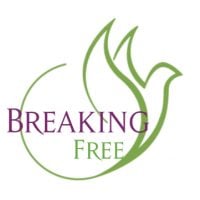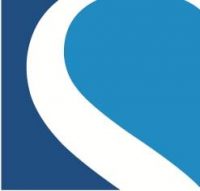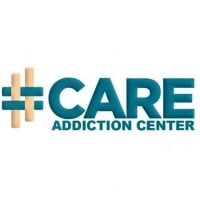Family Guidance Centers - Aurora
Drug Rehab Center in Aurora, Illinois
Family Guidance Centers - Aurora provides individuals suffering from substance abuse, mental health issues and alcoholism with personalized, JCAHO and SAMHSA accredited care through a range of services including Aftercare Support, Drug Rehabilitation Programs, Dual-Diagnosis Treatment Options, Outpatient Services with Detoxification Programs and Intensive Outpatient Levels of Care in order to facilitate long-term sobriety.
About This Illinois Facility
Family Guidance Centers - Aurora is an addiction treatment facility located in Aurora, Illinois. Established in 1969, this facility specializes in helping individuals experiencing opioid addiction, substance abuse, dual diagnosis, drug addiction, mental health issues, and alcoholism. Family Guidance Centers - Aurora is accredited by reputable organizations such as JCAHO, SAMHSA, and holds a state license. Their commitment to providing quality care is evident through their extensive range of services, which include aftercare support, detox, outpatient programs, intensive outpatient programs, dual-diagnosis treatment, and drug rehab.
With a strong emphasis on addressing various addiction and substance abuse issues, Family Guidance Centers - Aurora offers a comprehensive set of services to cater to individuals' specific needs. Their programs go beyond traditional treatment methods, incorporating aftercare support to ensure long-term recovery success. The facility provides detoxification services, allowing individuals to safely withdraw from substances under medical supervision. Through their outpatient programs, individuals can receive effective treatment without requiring residential stay. Dual-diagnosis treatment is also available, which addresses co-occurring mental health disorders alongside addiction. Overall, Family Guidance Centers - Aurora is dedicated to providing individuals with the necessary tools and support to overcome addiction and achieve lasting recovery.
Genders
Ages
Modality
Additional
Accreditations
State License
SAMHSA

JCAHO
Conditions and Issues Treated
Rehab centers in Illinois exist to help individuals bounce back from substance abuse. Drug addiction refers to the use of illegal drugs and improper use of prescription drugs. Substance abuse includes all problems that stem out from using psychoactive substances. Centers like Family Guidance Centers - Aurora are here to help.
Opioids are a set of drugs prescribed for pain relief. Opioid addiction for Illinois residents refers to the compulsive seeking of opioids, even when they are not required medically. Treatment involves medication-assisted therapy in which medicines, counseling, and behavioral therapies are all utilized at Family Guidance Centers - Aurora.
A dual-diagnosis describes two medical issues that are happening at the same time. They may or may not be related. Over 50% of people with an addiction in Illinois have another mental health condition. Screening for both addiction and any untreated mental health issue is essential, and individually managed by Family Guidance Centers - Aurora.
Levels of Care Offered at Family Guidance Centers - Aurora
This center offers a variety of custom treatment tailored to individual recovery. Currently available are Aftercare Support, Detox, Drug Rehab, Dual-Diagnosis, Intensive Outpatient, Outpatient, with additional therapies available as listed below.
An addict may have to go through alcohol or drug withdrawal. While detox may be uncomfortable, it is not life-threatening. Detoxification allows the addict to rid the body of all traces of drugs or alcohol and gives the addict a clean slate for their recovery. In an inpatient or outpatient setting, detox can be managed medically.
Family Guidance Centers - Aurora offers an Intensive Outpatient Program is for those who need intensive care but prefer to spend the majority of their time in the comfort of their own home. The rehabilitation services differ in length and intensity. They are customized to meet the needs of the patient.
Aftercare support refers to the follow-up care provided after the initial rehab program. The quality of aftercare support plays an important role in preventing relapses and sustains recovery. Aftercare support at Family Guidance Centers - Aurora is personalized according to the needs of the patient in Illinois.
Therapies & Programs
Individual therapy refers to one-on-one psychotherapy between a patient and their Family Guidance Centers - Aurora therapist. Individual therapy seeks to help identify the issues that drive and contribute to a client’s addiction or alcoholism. Another goal of individual counseling is to assist the client to learn how to manage their lives without alcohol or drugs.
Therapy for couples decreases unhealthy behavior in a relationship that can trigger addiction. Either, or both, members of the couple will be improved by this. This treatment administered by Family Guidance Centers - Aurora still targets addiction and can also make a relationship healthier through a variety of methods.
Group therapy occurs in a group setting as opposed to a one on one setting. It benefits patients by providing a feeling of support and letting them know they are not alone. Patients at Family Guidance Centers - Aurora also learn to build trust and understanding and gain perspective through discussions.
After experiencing trauma, it’s crucial to look for a facility that can provide trauma therapy. This approach zeroes in on the traumatic incidents that a patient has encountered in the past, recent or not. It’s been widely known that trauma can make an individual resort to alcohol or other substances to mask their troubles and pain. Trauma can originate from domestic violence, sexual abuse, an early encounter with death, sexual assault, and many more. The goal of trauma therapy at Family Guidance Centers - Aurora in Aurora, IL is to help the patient see beyond the trauma and move forward. Mental health professionals will facilitate the patient’s journey and see to it that he or she is no longer a victim of his or her traumatic experiences and has wholly regained his or her personal power.
DBT, also known as dialectical behavior therapy, is a form of cognitive behavioral therapy (CBT) that helps people understand how their thoughts, behaviors, and feelings all connect. This can give them more control over their actions, effectively stopping self-harm ideations and attempts in some patients. It can also help put people in control over some mental struggles, like borderline personality disorder.
Most individuals suffering from addiction have low self-awareness, so they end up making poor decisions. Cognitive Behavioral Therapy (CBT) is suitable for patients recovering from an addiction of any kind. Through it, patients become more aligned with their thoughts, emotions, and behaviors, giving them a better opportunity to respond appropriately to temptations and negative feelings.
This therapy modality at Family Guidance Centers - Aurora in Aurora, IL strengthens a person’s ability to stay on top of their emotional state and learn new stress management techniques so they won’t give in to the temptations easily. Moreover, CBT helps people communicate and express their emotions well, which can be vital in relapse management. CBT is also suitable for managing co-occurring disorders like depression and bipolar illness.
Rational Emotive Behavior Therapy sees a person suffering from substance addiction to have illogical reasoning, counterproductive actions, and does not see things clearly. REBT at Family Guidance Centers - Aurora in Aurora, IL deals with cognition, images, and behavior extensively to rectify the client’s bad habits. The process calls for practice, reiteration, and bolstering the new way of thinking being introduced to the patient.
When it comes to maintaining sobriety, people who quit recovery without developing life skills are disadvantaged. While teaching life skills at Family Guidance Centers - Aurora is difficult, support with aftercare helps patients learn these skills over time. Life skills include getting a career, living in a good environment, self-care, and finance management, all in Aurora, IL.
Payment Options Accepted
For specific insurance or payment methods please contact us.
Family Guidance Centers Associated Centers
Discover treatment facilities under the same provider.
- Family Guidance Centers - Joliet in Joliet, IL
- Family Guidance Centers - Springfield in Springfield, IL
- Family Guidance Centers - Harvey in Harvey, IL
- Family Guidance Centers - Downtown Chicago/Loop Office in Chicago, IL
- Family Guidance Centers - Des Plaines in Des Plaines, IL
Learn More About Family Guidance Centers Centers
Additional Details
Specifics, location, and helpful extra information.
Aurora, Illinois 60505 Phone Number(630) 801-0017 Meta DetailsUpdated November 25, 2023
Staff Verified
What else do people call Family Guidance Centers – Aurora?
People have occasionally also searched for “Family Guidance Centers in Illinois”
Patient Reviews
There are no reviews yet. Be the first one to write one.
Aurora, Illinois Addiction Information
In 2016, more than 2,350 Illinoisans died from drug overdoses. More than 5,500 deaths annually occur in Illinois due to the abuse of alcohol and other drugs. 7.17% of Illinois residents reported using illicit drugs in the past month (2018). Substance abuse costs the state approximately $3.5 billion every year.
In Aurora, Illinois, the number of people addicted to drugs has increased from 6% to 8%. This puts them at higher risk for developing one or more serious health problems such as cancer, AIDS, heart disease, stroke, and lung infection. The most common drugs involved in these overdoses were opioids (1,946 deaths). Some programs focus on outpatient care, while others offer residential treatment.
Treatment in Nearby Cities
- Palos Heights, IL (27.3 mi.)
- Forest Park, IL (26.4 mi.)
- Carmi, IL (254.8 mi.)
- Galena, IL (117.7 mi.)
- Paris, IL (152.9 mi.)
Centers near Family Guidance Centers - Aurora
The facility name, logo and brand are the property and registered trademarks of Family Guidance Centers - Aurora, and are being used for identification and informational purposes only. Use of these names, logos and brands shall not imply endorsement. RehabNow.org is not affiliated with or sponsored by Family Guidance Centers - Aurora.







